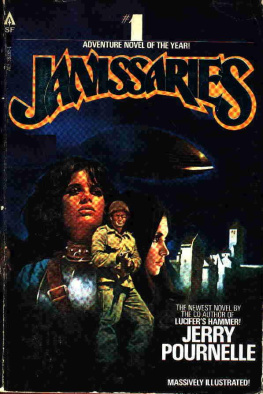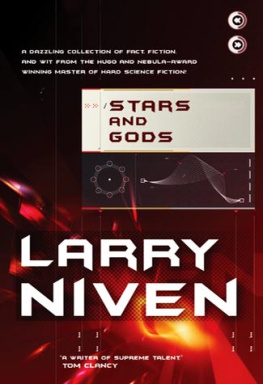Jerry Pournelle - Go Tell the Spartans
Here you can read online Jerry Pournelle - Go Tell the Spartans full text of the book (entire story) in english for free. Download pdf and epub, get meaning, cover and reviews about this ebook. genre: Science fiction. Description of the work, (preface) as well as reviews are available. Best literature library LitArk.com created for fans of good reading and offers a wide selection of genres:
Romance novel
Science fiction
Adventure
Detective
Science
History
Home and family
Prose
Art
Politics
Computer
Non-fiction
Religion
Business
Children
Humor
Choose a favorite category and find really read worthwhile books. Enjoy immersion in the world of imagination, feel the emotions of the characters or learn something new for yourself, make an fascinating discovery.

- Book:Go Tell the Spartans
- Author:
- Genre:
- Rating:5 / 5
- Favourites:Add to favourites
- Your mark:
- 100
- 1
- 2
- 3
- 4
- 5
Go Tell the Spartans: summary, description and annotation
We offer to read an annotation, description, summary or preface (depends on what the author of the book "Go Tell the Spartans" wrote himself). If you haven't found the necessary information about the book — write in the comments, we will try to find it.
Go Tell the Spartans — read online for free the complete book (whole text) full work
Below is the text of the book, divided by pages. System saving the place of the last page read, allows you to conveniently read the book "Go Tell the Spartans" online for free, without having to search again every time where you left off. Put a bookmark, and you can go to the page where you finished reading at any time.
Font size:
Interval:
Bookmark:
Jerry Pournelle
Go Tell the Spartans
Go Tell the Spartans
FOR THE THREE HUNDRED
Go tell the Spartans, passerby,
That here obedient to their laws we lie.
PROLOGUE
The history of the 21st century was dominated by two developments, one technical and one social.
The technical development was, of course, the discovery of the Alderson Drive a decade after the century began. Faster-than-light travel released mankind from the prison of Earth, and the subsequent discovery of inhabitable planets made interstellar colonization well nigh inevitable; but the development of interstellar colonies threatened great social and political instability at a time when the international political system was peculiarly vulnerable. Whether through some hidden mechanism or a cruel coincidence, mankind's greatest technical achievements came at a time when the educational system of the United States was in collapse; at a time when scientists at Johns Hopkins and the California Institute of Technology were discovering the fundamental secrets of the universe, scarcely a mile from these institutions over a third of the population was unable to read and write, and another third was most charitably described as under-educated.
The key social development was the rise and fall of the U.S./U.S.S.R. CoDominium. Begun before the turn of the Millennium, the CoDominium was a natural outgrowth of the Cold War between the Superpowers. When the Cold War ended, the European nations once known in International Law as "Great Powers" retained some of the trappings of international sovereignty, but had become client states of the U.S.; while the Soviet Union, shorn of its external empire, retained both its internal empire and great military power, including the world's largest land army, fleet, and inventory of nuclear warheads and delivery systems.
In the last decade of the 20th century both the United States and the Soviet Union experimented with foreign policies that left the rest of the world free to compete with the former Superpowers. It soon became clear, if not to the world's peoples, at least to political leaders of the U.S. and U.S.S.R., that the resulting disorder was worse than the Cold War had ever been. It was certainly more unpredictable, and thus more dangerous for the politicians, who had, under the Cold War, evolved systems to ensure their tenure of power and office. The political masters of the two nations did not at first openly state that it would be far better to divide the world into spheres of influence than to allow smaller powers to rise to prominence; but the former United Nations Security Council easily evolved into a structure which could not only keep the peace, but prevent any third party from challenging the principle of superpower supremacy*** The 20th century social analyst and philosopher Herman Kahn would hardly have been surprised by this evolution. One of Kahn's speculations had been that the natural form of human government was empire, and the natural tendency of an empire was to expand, there being no natural limit to that expansion save running up against another empire of equal or greater strength.
There had been exceptions to that rule, the most notable being the United States of America, which, after the "manifest destiny" period of imperial expansion, attempted to settle into peaceful isolation. That repose was shattered by the latter half of the 20th century, when the United States was called upon to change its very nature, first to meet the threat of National Socialism, then of Soviet Imperialism. Kahn postulated in 1959 that in order to resist the Soviet Empire, the United States would be required to make such fundamental transformations of its republican structure as virtually to become an empire itself; and that having made the transformation, the end of the Cold War would not be sufficient to undo the change. He was, of course, not alone in that prediction, which proved largely to be true. Kahn did not live to see the CoDominium, but it would hardly have surprised him.
Of course no one predicted that the rapid development of faster-than-light space travel would rapidly follow the formation of the CoDominium. However, once the Alderson Drive was perfected, few disputed that there had to be some kind of universal government; and while few would, given free choice, have chosen the CoDominium for that role, there was a surprising consensus that the CoDominium was better than anarchy.
As the 21st century came to a close, it was obvious to most analysts that the CoDominium was doomed. There was widespread speculation on what would replace it. Astute observers looked to the CoDominium Fleet to provide the nucleus of stability around which a new order might be built, and they were not disappointed. What was surprising, though, was the role played by the Dual Monarchy of Sparta.
Sparta was not founded as an imperial power, and indeed its rulers explicitly rejected the notion of either ambitions or responsibilities extending beyond their own planetary system; yet when the CoDominium finally collapsed, no planetary nation was more important in building the new order.
As with any complex event, many factors were important in the transformation of Sparta from a nation founded by university professors seeking to establish the good society to the nucleus of what is formally called the Spartan Hegemony and which in all but name is the first interstellar empire; but analysts are universally agreed that much of the change can be traced to the will and intent of one man, Lysander I, Collins King of Sparta. It remains for us to examine how Lysander, originally very much in agreement with the Spartan Founders that the best policy for Sparta would be an armed neutrality on the Swiss model, came to embrace the necessity of empire.
From the preface to From Utopia to Imperium: A History of Sparta from Alexander I to the Accession of Lysander, by Caldwell C. Whitlock, Ph.D. (University of Sparta Press, 2120).
CHAPTER ONE
Crofton's Essays and Lectures in Military History (2nd Edition) Professor John Christian Falkenberg II:
Delivered at Sandhurst, August 22nd, 2087 In the last decades of the 20th century, many predicted that the battlefield of the future would be one of swift and annihilating violence, ruled by an elaborate technology. Instead, in one of history's many illustrations of the Law of Unintended Consequences, the 21st century saw military technology enter an era of stalemate. Cheap and accurate handheld missiles swept the air above the battlefield clear of manned aircraft; railguns, lasers and larger rockets did likewise for the upper atmosphere and near space.
The elaborate dance of countermeasures made many sophisticated electronic devices so much waste weight; tailored viruses made networks of linked computers a recipe for battlefield chaos. Paradoxically, many of the most sophisticated weapons could only be used against opponents who were virtually unarmed. By freezing technological research, the CoDominium preserved this situation like a fly in amber.
Beyond Earth, the rarity and patchy development of industry exaggerated these trends in the colony worlds. CoDominium Marine expeditionary forces often operated at the end of supply lines many months long, with shipping space too limited for heavy equipment, on thinly settled planets where a paddle-wheel steamboat might represent high technology. The Marines-and still more the independent mercenary companies-have been forced to become virtually self-sufficient. Troops travel scores of light-years by starship, then march to battle on their own feet, and their supplies may be carted by mules.
Artillery is priceless but scarce, and tanks so rare a luxury that the intervention of half a dozen might well decide a campaign. Infantry and the weapons they carry on their backs; machine guns and mortars and light rockets, have come into their own once more. Apart from a few flourishes, body armor and passive nightsight goggles, the recent campaigns on Thurstone and Diego showed little that would have puzzled soldiers of the British Empire fighting the Boer War two centuries ago.
Font size:
Interval:
Bookmark:
Similar books «Go Tell the Spartans»
Look at similar books to Go Tell the Spartans. We have selected literature similar in name and meaning in the hope of providing readers with more options to find new, interesting, not yet read works.
Discussion, reviews of the book Go Tell the Spartans and just readers' own opinions. Leave your comments, write what you think about the work, its meaning or the main characters. Specify what exactly you liked and what you didn't like, and why you think so.







